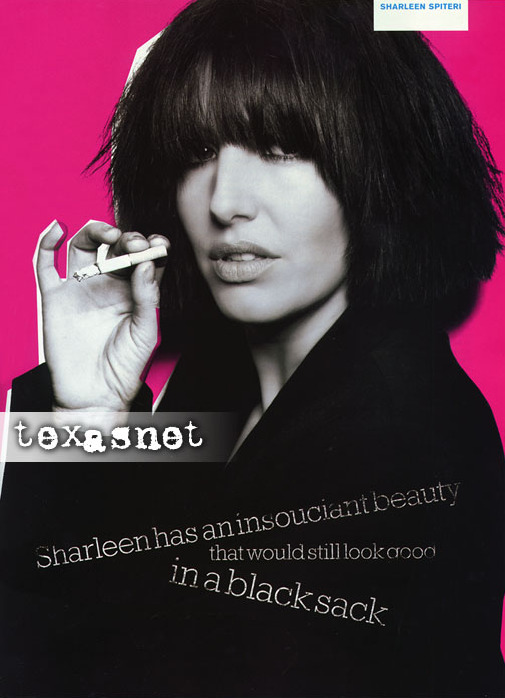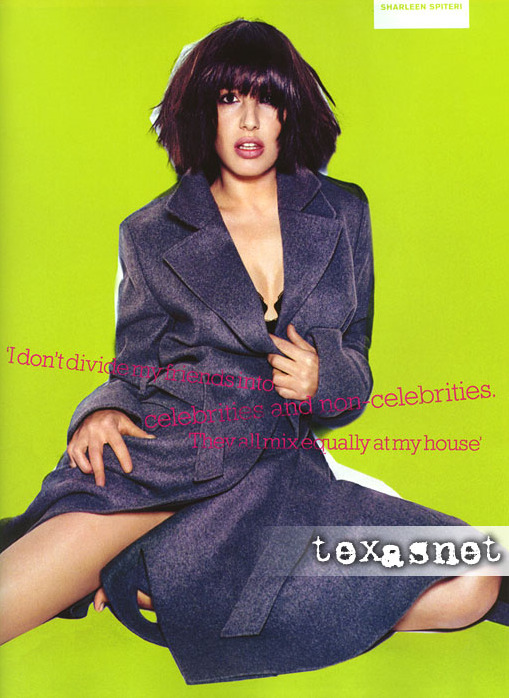#In so many ways Sawyer does love Miranda so much and WANTS more with her
Text
@royalreef asked: ❤❤❤ pretend i am sending the right heart emoji i am tired (yes feel free to do polly and milo while youre at it)

If It’s Love // Accepting
Miranda

If we kissed?
[] Quickie.
[X] Tongue.
[X] Softly(?) bite your lip.
[] We wouldn’t.
[X] Long and meaningful.
[] Let’s hit up the bedroom.
[X] You remember last time?
[] Awkward…
[] Lol no.
Would I go out with you?
[X] Yes, definitely.
[X] No.
[X] I want to, but it wouldn’t work.
[] Maybe.
[] Nope, you’re like family.
[] You’re cute, but probably not.
[] Just simply not my type.
[] If I knew you better.
[] Already did.
[X] I don’t know.
If we took a picture together, we’d be…
[] Hugging each other.
[X] Just chilling.
[] Holding hands.
[] Kissing.
[X] Acting dumb.
[X] Normal picture.
[] You holding me from behind.
You are…
[] Cute/Pretty.
[] Good looking.
[] Sexy.
[X] All of the above
You + me + room = …
[X] Movies.
[] Cuddling.
[X] Hanging out.
[] Kissing.
[X] Playing games.
[] Everything.
[] Wouldn’t let you in.
You should…
[X] Hit me up.
[X] Be mine.
[] Marry me.
[Already Did This] Reblog this so I can send you a heart.
[X] Be studying
If we got married, I’d…
[] Divorce you.
[X] Make kids.
[] Take your money and bounce.
[] Smash every day.
[] I would cheat on you.
[X] Be faithful.
[] Kill you in your sleep
[X] We wouldn’t

@milobelladonna / Milo
If we kissed?
[X] Quickie.
[X] Tongue.
[] Softly bite your lip.
[] We wouldn’t.
[] Long and meaningful.
[] Let’s hit up the bedroom.
[] You remember last time?
[X] Awkward…
[] Lol no.
Would I go out with you?
[] Yes, definitely.
[] No.
[] I want to, but it wouldn’t work.
[] Maybe.
[] Nope, you’re like family.
[X] You’re cute, but probably not. You know too much
[] Just simply not my type.
[X] If I knew you better.
[] Already did.
[X] I don’t know.
If we took a picture together, we’d be…
[] Hugging each other.
[X] Just chilling.
[] Holding hands.
[] Kissing.
[] Acting dumb.
[X] Normal picture.
[] You holding me from behind.
You are…
[] Cute/Pretty.
[X] Good looking.
[X] Sexy.
[] All of the above
You + me + room = …
[] Movies.
[] Cuddling.
[X] Hanging out.
[] Kissing.
[] Playing games.
[] Everything.
[] Wouldn’t let you in.
You should…
[X] Hit me up.
[] Be mine.
[] Marry me.
[] Reblog this so I can send you a heart.
[] Be studying
If we got married, I’d…
[] Divorce you.
[] Make kids.
[X] Take your money and Bounce.
[] Smash every day.
[] I would cheat on you.
[] Be faithful.
[] Kill you in your sleep
[X] We wouldn’t

@prankmasterz
If we kissed?
[X] Quickie.
[X] Tongue.
[] Softly bite your lip.
[] We wouldn’t.
[] Long and meaningful.
[X] Let’s hit up the bedroom.
[] You remember last time?
[] Awkward…
[] Lol no.
Would I go out with you?
[X] Yes, definitely.
[] No.
[] I want to, but it wouldn’t work.
[] Maybe.
[] Nope, you’re like family.
[X] You’re cute, but probably not.
[] Just simply not my type.
[X] If I knew you better.
[] Already did.
[X] I don’t know.
If we took a picture together, we’d be…
[] Hugging each other.
[X] Just chilling.
[] Holding hands.
[] Kissing.
[X] Acting dumb.
[X] Normal picture.
[] You/Me holding me from behind.
You are…
[X] Cute/Pretty.
[] Good looking.
[X] Sexy.
[] All of the above
You + me + room = …
[X] Movies.
[] Cuddling.
[X] Hanging out.
[] Kissing.
[X] Playing games.
[] Everything.
[] Wouldn’t let you in.
You should…
[X] Hit me up.
[] Be mine.
[] Marry me.
[Already Did This] Reblog this so I can send you a heart.
[X] Be studying
If we got married, I’d…
[] Divorce you.
[X] Make kids.
[] Take your money and bounce.
[X] Smash every day.
[] I would cheat on you.
[X] Be faithful.
[] Kill you in your sleep
[X] We wouldn’t
#royalreef#❣ Can't stop staring into those ocean eyes ❣ Miranda // Royalreef#((Miranda and Sawyer are complicated lbr#In so many ways Sawyer does love Miranda so much and WANTS more with her#But feels like it's impossible because of who they are who she is#They love Miranda as a friend as a lover as more then both of those but are afraid to love her like that because they feel they do not#deserve to love her like that due to their societal places the best they can get is friendship a fling some longing#Meanwhile with Milo they'd be way more attracted but at the same time what all Milo knows terrifies Sawyer#Like I've been meaning to continue our Milo and Sawyer thread but Sawyer just keeps going 'They know too much I'm out bye' each time KHDJKHG#As for Polly I think Sawyer would get along with her and be attracted to her but I'm not entirely sure if they'd get together as a couple#Mainly cause both have their own issues that I think might stop them from getting together#Which also reminds me I still have the mer polly thread to reply too))#❣ Queue ❣
2 notes
·
View notes
Audio
You know that deep deep feeling / When you love someone so much / You feel your heart’s gonna burst / The feeling goes from best to worst / You feel your heart is gonna burst
Here in my heart / I feel a deep devotion / It almost hurts / It’s such a deep emotion
Now every time it rains / It sometimes gets too much / You know I feel the pain / When I feel your loving touch
Emotion burns an ocean of love / You got that hot emotion / Burns an ocean of love
The deep deep pain of feeling / The deep deep pain of feeling / The deep deep pain
So intense the joy of giving / How does it feel / So immense the thrill of living / How does it feel
Sometimes I wish it would stay / Sometimes I wish it would go away / Emotion…
-
Q: One of my favourite songs on the album is the midway point of ‘Deep Deep Feeling’, which is over eight minutes long. If people are expecting your lockdown album to feel like lockdown, that’s the track that feels the most claustrophobic to me, despite it being essentially about love.
PAUL: That was one of the songs that I’d actually started last year. If I’m lucky, I’ll have a bit of time when I’ll go into the studio and just make something up, and so I try to just do something that I haven’t done before. This was one of those that I didn’t finish. To me, what it was about was, sometimes – I don’t how it happens of even what it is – when you’re feeling real love towards someone, sometimes it can manifest in a tingling over your whole body, and it’s a pretty funny feeling, and you almost don’t like it – ‘What the hell is this?!’ – like you’re about to be beamed up into a spaceship or something. On this song I was fascinated with the idea of that – that deep, deep feeling when you love someone so much it almost hurts.
— Paul McCartney, interviewed by with Stuart Stubbs for the Loud And Quiet magazine (October 2020).
-
Out of the blue, I met this girl and we started talking and she happened to say, ‘I knew Linda.’ So that was emotional. I wouldn’t meet, typically, many people who knew Linda, and who knew her during her cancer treatment – and Nancy did. She’s a cancer survivor herself. So it got very deep, very quickly, and it was like, 'What the hell was that?’ And then I ran into her a couple of more times on the holiday, and we got to know each other and started dating. So the song [’Scared’] is about that, about this depth of emotion, of feeling – but totally being scared to say or do anything about it. Like a tongue-tied teenager.
— Paul McCartney, interview with Miranda Sawyer for The Guardian (13 October 2013).
-
Maybe I’m Amazed (1970): Maybe I'm amazed at the way you love me all the time / And maybe I'm afraid of the way I love you
-
I wrote ‘Maybe I’m Amazed’ in my early days with Linda. I was sitting in London, playing my piano, and the song kind of wrote itself – reflecting my feelings towards her. It’s remained a favourite of mine.
— Paul McCartney, in Wingspan: Paul McCartney's Band on the Run (2002).
-
It was my first trip with John, or with any of the guys. We stayed up all night, sat around and hallucinated a lot.
Me and John, we’d known each other for a long time. Along with George and Ringo, we were best mates. And we looked into each other’s eyes, the eye contact thing we used to do, which is fairly mind-boggling. You dissolve into each other. But that’s what we did, round about that time, that’s what we did a lot. And it was amazing. You’re looking into each other’s eyes and you would want to look away, but you wouldn’t, and you could see yourself in the other person. It was a very freaky experience and I was totally blown away.
There’s something disturbing about it. You ask yourself, 'How do you come back from it? How do you then lead a normal life after that?’ And the answer is, you don’t. After that you’ve got to get trepanned or you’ve got to meditate for the rest of your life. You’ve got to make a decision which way you’re going to go.
— Paul McCartney, in Barry Miles’ Many Years From Now (1997).
-
[Sometimes, it’s not just about being scared of showing your feelings. It’s being scared of feeling them in the first place.]
#Deep Deep Feeling#paul mccartney#McCartney III#the deep deep pain of feeling#Maybe I'm afraid of the way I love you#for well you know that it's a fool who plays it cool by making his world a little colder#I don't examine myself that way#how do you come back from it?#Maybe I'm Amazed#macca#solo#2020#1997#quote#audio#meta#my stuff#Nancy#Linda#johnny
56 notes
·
View notes
Text
The Best Little Sex Bomb In Texas
Interview by Miranda Sawyer, Photography by Wayne Maser
Taken from British GQ - January 2004

There are many reasons to like Sharleen Spiteri. She's broken her nose four times. She once painted a mural of Che Guevara that covered her dad's garage wall. She understands that sexiness is more than "tits and arse. Well, straightforward tits and arse, anyway". She owns the original Blondie Parallel Lines mini-dress, given to her personally by Debbie Harry. She has a voice that can sound as heartworn as Dusty Springfield, as bed-borne as Chrissie Hynde. Her favourite term of abuse is "complete fanny".
And, unlike most women, she looks fab in mens clothing. Actually, she's the type of insouciant beauty that would look good in a black sack; which is lucky, as that's what she appears to be wearing. We're in J Sheekey's restaurant in Covent Garden. Sharleen's just come from Top Of The Pops, where she and her band, Texas, performed their recent single, "Carnival Girl", with Ragga MC, Kardinal Offishall. She's still wearing her telly outfit: a black all-in-one, though she's swapped her take-your-eye-out stilettos for take-your-knee-out bower boots. Her hair is blunt-cut and tickles her eyelashes. She is small, dark-eyed, full-mouthed, French-looking; sultry, like her photos, but not sulky. In fact, Sharleen doesn’t stop chatting, in her throaty Glaswegian tones, about any topic you care to bring up: films, food, fashion, stripping... There's been a suggestion that she and I, as thirtysomething bonnes viveuses, would like to spend the evening in a strip club. But the only one that Sharleen will even consider checking out is a hardcore gay men's kit-off night in a notorious East End pub.

"You'll not drag me to any of that Spearmint-Rhino-Peter-Stringfellow naff old rubbish," she roars. "We'll go to Amateur Night at the White Swan. There's £1.ooo for the best act!" She announces this to me, but also to the J Sheekey waiting staff too, who clearly know and like her. "You'd better tell me all about it," says one to her, conspiratorially. "I want size, technique, all the details..."
Sharleen is good at making friends: whether stars (Madonna, Stella, Gwyneth), or us lesser mortals. She's fearless, unsnobbish company, with a lewd anecdote or two up her sack-sleeve, and, unlike many famous people, she knows how to listen. She'd have made a great hairdresser.
"I was a great hairdresser!" she laughs. "My tips were wicked! And people told me everything - I got loads of scandal, stuff about wife-swapping circles. But what I was really known for was when people brought in pictures of celebrities and said, 'That's the way I want my hair'. I'd put my hand over the celebrity's face and say, 'Is that really what you want? Cos we don't do faces in here, we just do hair."'
She tells it like it is, does Shar. Ask her whether Texas is a democracy, and she says: "No way. Texas is me and Johnny (McElhone). The band formed around that, we write the songs together and the rest of the band either gets that or gets out. And they're totally fine with me getting all the attention. They're happy getting the money and none of the grief."
The tuneful pop-rock band that is Texas formed in Glasgow in 1986, when 18-year-old Sharleen, a hairdresser and art student, met Johnny McElhone. Johnny, then 23, had played bass in Altered Images (he joined when he was just 15: his parents had to sign his contract for him), and later, in Hipsway. On a whim he asked Sharleen if she wanted to sing for a new band he was putting together. The audition was arranged, "but I never turned up", says Shar. "I thought he was sleazing me." Luckily, Johnny, who wasn't, called again. This time Sharleen went along, sang Culture Club's "Do You Really Want To Hurt Me", and Texas were formed. The first song Johnny and Sharleen wrote together was "I Don't Want A Lover".
In between spoonfulls of potted shrimp, Sharleen explains that she'd never thought of herself as a singer, because every Spiteri sang. Her father's family is Italian, her mother's French, and at reunions, every family member would have to perform a song, wether they wanted to or not. "But I never got attention, because my cousins did the crowd-pleasers", she sniffs. "Never a dry eye in the house when they sang." Sharleen didn't approve of such obvious tactics, and when Texas got a record contract, she was prickly with it, insisting on always being pictured with a member of the band or with her guitar, never being interviewed separately, dressing mannishly, not smiling. Her idols were Chrissie Hynde, Patti Smith, Siouxsie Sioux. It was the late Eighties. She was Scottish. She was serious.
In 1989, "I Don't Want A Lover" went Top ten in the UK, and Texas' first LP Southside, sold 1.3m copies. But the two follow-ups, Mothers Heaven and Ricks Road, didn't do so well, and around 1995, the band went into crisis mode. "We were nothing in Britain," says Sharleen, "but, because we were successful everywhere else, the record company were tiptoe-ing round us. I knew I wasnae important: I felt like screaming, 'Stop wrapping me in cotton wool!' Also, in Glasgow, everyone knew us, we were big fish in a small pond. I'd rather be a small fish in a big pond. The whole atmosphere was making me claustrophobic. So I moved to Paris."
Paris proved "un tonique" for our Texan trouper. Sharleen wrote "Say What You Want" on a Paris rooftop, drinking a large glass of red wine. She met fashion journalist Ashley Heath, her partner, at a party. (They bonded over an argument about music.) Being away from home, and being able cope with that, boosted her confidence. Though you wouldn't think it now, Sharleen was "very, very, quiet" at school: not quite the ugly mate, but the one that boys approached, not to ask out, but to ask if her friend would go out with them. "The whole time I just thought, `What the fuck am I doing here?"' She left at 15: she has no contact with any former classmates.
Anyway, in 1996, the Shiny! Sexy! New! Texas appeared, with Sharleen very much to the fore. For the first time, she had the self-assurance to use her languidly erotic looks. In videos, she rolled around in sea shallows, and made fully-clothed love to some lucky model. In pictures, she pulled at her hair and bit her lip. She was incredible sexy, but not straightforwardly so; what she was, was cool. It irritates Sharleen when people think that this was somehow acquired illegally: that her chic was painted on late, without serving her dues, manipulated by the boyfriend or her record company. As she points out, she found her feet first in fashion and art, and her hairdressing skills took her on shoots around the world.
Sharleen does have that fashion instinct: she loves seeking out new designers and musicians, collaborating with them before they get too well-known. "But everyone gets to know about them in no time at all now!" she laughs. "You know, there is no story behind how I got cool. Of course I'm trying to be cool. Everyone is. And I always was cool: at least I thought so. Even in 1989, when I was wearing a biker jacket and jeans, trying to be more androgynous than everybody else, referencing the Clash, I thought I was dead, dead trendy. I did it myself. I didnt even have a stylist until [the band's fifth album] The Hush."

And of course, she could have done Miss Wet T-shirt until she dissolved and it wouldn't have made any difference if Texas hadn't come up with the songs. But they did: White On Blonde was a Number One, four-million-selling smash, that produced four Top Ten singles ("Say What You Want", "Halo", "Black Eyed Boy" and "Put Your Arms Around Me") and earned Sharleen and Johnny an Ivor Novello Award for Outstanding Song Collection. The band's next two LPs, The Hush (1999), and The Greatest Hits (2000), also stormed the charts. Texas have now sold 20m records worldwide.
Weirdly, though, it wasn't until 2001, when the band took another break, that Sharleen truly came to mainstream attention. Over the last few years, Sharleen Spiteri has moved from being the hip bird out of Texas to becoming Heat fodder. Blame that heady contemporary combination of famous friends, and getting pregnant. Still, the interest took her by surprise. "You expect to have your photo taken if you're at a fashion show, or coming out of a posh restaurant," she says. ": when you're struggling with your shopping, looking like a whale? Cheers. Being pregnant is really the best time to be papped, you know."
She's squared up to paparazzi in the past, slamming her car into reverse and almost driving into a following photographer, then getting out and ranting at him through the window. "The whole time I was having a go, he and his mate wouldn't look at me, they just looked straight ahead. The before he drove off, he said, `See that car on the other side of the road? He's following you too."' Still, she managed to avoid an embarrassing picture when, at eight months pregnant, she locked herself out of her house near Regent' Park and had to hoik herself and her bags over the iron gates: "Now, that really would have been a horrendous sight."
One shot that everyone did see was of Sharleen's friend, Arsenal's Thierry Henry. On 10 September 2002, the day after Sharleen's daughter, Misty Kid, was born, Arsenal played Manchester City; Henry scored the winner and ripped off his shirt to reveal a slogan that read, "For the new born Kid". "That could have cost TT 30 grand," grins Sharpen. Luckily they decided not to fine him."
"TT" often pops over for a chat. Does Sharpen ever feel weird when famous people come round? Only once," she muses, "when Debbie Harry came over, and was sitting in my kitchen eating dinner, being so nice. She was such an idol of mine when I was young. But otherwise, it's only when it freaks someone else out. I don't divide my friends into celebrities and non-celebrities, don't think like that. So they mix up in my house, and it's only when a friend phones up the next day and goes, `That was some evening!' that I think about it."

Still, I think it's important to Sharleen to be accepted by credible famous people, because she's spent so long having her band dismissed by snotty critics. Despite her own hipster kudos, despite the band's collaborations with the Wu-Tang Clan, Rae and Christian, and now Kardinal Offishall, Texas' music has often been labelled "safe", or naff". Having TT and Debbie et al onside shows that she is cool and that, allied with her immense songwriting success, means she can cheerfully say, "Sod the lot of you". The girl is fashion-conscious, she wants respect: you can't blame her. Anyhow, celebrity fact alert! Coldplay's frontman Chris Martin now lives in Sharleen's old flat: "We call it the House of Hits," she grins.
And there are more of those coming: Texas' latest album, Careful What You Wish For, is Peppered with potential hits that play to the band's proven strengths: catchy, dreamy tunes, evocative guitars and Sharleen's gorgeous voice. The new single, "I'll See It Through", has all this in spades, and sounds like Dusty Springfield singing Burt Bacharach. But there are plenty of other singles there: "Telephone X", a Blondie-style stomp; "And I Dream", which recalls the exuberance of Madonna's "Ray Of Light"; the title track, a hand-clapping singalong. After 16 years in the business, it's obvious that the girl knows what she's doing.
Unfortunately, after three hours at Sheekey's, I'm not sure that I do. The wine has gone down very easily, the conversation hasn't stopped. We've discussed DIY - Sharleen's great at it, especially shelves; underwear - "I am very particular about my knickers"; scars - Sharleen has five: forehead, hand, left eye, both knees; the hyperactivity of parents - her retired merchant seaman father does the lights for Texas' live show; the madness of boyfriends - Heath initially told his mum and dad that Sharpen worked in Glasgow Airport, but forgot to tell her: "I couldn't work out why his mum kept asking me about Duty Free." Misty Kid gets a few mentions: she's a climber, like her mum; stubborn, like both her parents. We spend quite some time talking about song-writing.
Sharleen starts a new notebook for each Texas album and fills it with ideas and lyrics. Sometimes she only needs one, sometimes three. Careful What You Wish For was a two-notebook LP. She has no formula for writing, and she'll always sacrifice a word for a melody.

But, well, bollocks to such serious talk! It's stripper-time! Off we go in search of a place where pecs are expected and the knackers hang free. The White Swan is legendary as being the place where Michael Barrymore came out; it's an old-school gay man's pub, rather than a metrosexual bar. Its Amateur Night has gained a bit of a reputation recently, as a night of laughter and never forgetting.
We pull up outside and skip to the door. There's a sign that says "Men Only Tonight", but we are undeterred; after all, Sharleen is a "dykon'' in a boiler suit, and my shoes are certainly sensible. But a big, bald man stops us at entry. "No women," he says, shortly. Sharpen argues; her female friends have been in before. No luck. We try chatting up some arriving punters, to no avail. Sharleen doesn't resort to "do you know who I am?", but you'd think they would: she played the London Astoria's self-explanatory G-A-Y a week-and-a-half ago, and was recently featured in gay magazine Boyz.
She tries again. The big, bald man says bigly, baldly: "Go away." Curses! Thwarted. "Goes to show that you can be as famous as you like and it's not a passport to everywhere," shrugs Sharpen. "Shall we go back to mine? I'll get my boyfriend to strip."
We do; he, thankfully, doesn't. And, chat-chat-chatting in her big comfy kitchen, the plasma screen playing MTV with the sound down, Misty's toys strewn across the floor, you understand why Sharpen attracts cool people. It's hardly sensational but, the simple facts are: Sharpen Spiteri is talented, hilarious, and the sexiest night out you can have when everyone keeps their clothes on.

#article#carefulwhatyouwishfor#British GQ#GQ#Wayne Maser#WayneMaser#SharleenSpiteri#Sharleen Spiteri#Sharleen#Spiteri
0 notes
Text
Esther Perel: 'Fix the sex and your relationship will transform'
New Post has been published on https://relationshipqia.com/must-see/esther-perel-fix-the-sex-and-your-relationship-will-transform/
Esther Perel: 'Fix the sex and your relationship will transform'
Esther Perels breathtakingly frank therapy podcasts Where should we begin not only make for juicy listening, theyve revitalised the stale private lives of millions. Miranda Sawyer listens to the psychotherapist
Passion has always existed, says Esther Perel. People have known love forever, but it never existed in the context of the same relationship where you have to have a family and obligations. And reconciling security and adventure, or love and desire, or connection and separateness, is not something you solve with Victorias Secret. And there is no Victors Secret. This is a more complicated existential dilemma. Reconciling the erotic and the domestic is not a problem that you solve. It is a paradox that you manage.
Ooh, Perel is a great lunch date. All psychotherapists are, in my experience, but shes particularly interesting. Sex, relationships, children; she covers them all in the two hours we spend together. But also collective trauma, migration, otherness, freedom all the good stuff.
Perel is a practising couples and family therapist who lives in New York. Aside from her clinical work she counsels around 12 couples or individuals each week she has two best-selling books: one about maintaining desire in long-term relationships (Mating in Captivity), the other about infidelity (The State of Affairs). She has released two fascinating podcast series, called Where Should We Begin?, where listeners get to listen in on real-life couples having therapy with her. The podcast is where I first came across her its won a British Podcast Award, a Gracie Award in the States and was named as the Number One podcast by GQ.
On top of all this, she hosts workshops and lectures as well as the inevitable TED talks, one of which has been watched more than 5m times. I went to one of her London appearances earlier this year. Alain de Botton was the host and he introduced Perel with quite some hyperbole, calling her one of the greatest people alive on Earth right now. (Perel dismissed this afterwards, though she likes de Botton: He put me on such a platter.)
Esther Perel sometimes sings to her clients; she tells them off quite a lot, especially if they think sex should come naturally. Photograph: Jean Goldsmith for the Observer
The reason for Perels popularity is her clear eye on modern relationships. She says, rightly, that we expect much more from our marriages and long-term relationships than we used to. For centuries, marriage was framed within duty, rather than love. But now, love is the bedrock. We have a service model of relationships, she says to me. Its the quality of the experience that matters. She has a great turn of phrase: The survival of the family depends on the happiness of the couple. Divorce happens now not because we are unhappy, but because we could be happier. We will have many relationships over the course of our lives. Some of us will have them with the same person.
For a while, Perel wasnt taken particularly seriously by the therapist community: she tells me that when Mating in Captivity came out in 2006, it was only the sexologists that thought it was great. This is because her thinking went against long-established relationship wisdom, namely that if you fix the relationship through talking therapy, then the sex will fix itself. Perel does not agree. She says that, yes, this might work, but I worked with so many couples that improved dramatically in the kitchen, and it did nothing for the bedroom. But if you fix the sex, the relationship transforms.
We meet in a boutique hotel in Amsterdam, where Perel orders her food in fluent Dutch. She has a light Belgian accent (she says boat for both), and she wears some delicate gold jewellery, a bit like the Indian hath panja, on her right hand. (Both of these seem to excite American journalists, along with Perels good looks. A relationship therapist who you might fancy, shocker!)
We begin talking about her podcast series. Its an astonishing listen, partly because you get to earwig other peoples problems (always great) and partly because Esthers methods are so flexible: in the first series she got one young woman to wear a blindfold while her partner inhabited a more assertive sexual character, which he did by speaking in French. She sometimes sings to her clients; she tells them off quite a lot, especially if they think sex should come naturally: Who the hell told you that BS?
Series three, released next month, is slightly different to the last two. This time round Perel very deliberately chooses couples at different stages, because she wants to show an arc of a relationship, all the way to its end. Also, she says, I wanted to bring in the way that relationships exist in a larger, social, cultural, context. That context often gives a script about how one should think about suicide, about gender, about divorce and so forth. So we hear from a young couple coping with enforced distance in their relationship: one is US-born and the other is Mexican, without a US visa. Another is a mother and her child, who does not identify as either gender. Another couple, with a young child, have divorced, but seem to get along much better now: why?
Perel finds her podcast therapees via her Facebook page: they apply in their thousands. Her podcast producers sift through, using guidelines that Perel suggests them: this time round she knew she wanted to cover infertility and also suicide. Then theres a lengthy pre-recording interview process where its explained to the couples that, yes, this really is going on air and, yes, they might be recognised (from their voices; theyre anonymous otherwise). Are you OK in understanding that your story will become a collective story? You will be giving so much to others, as well. Its not just for you, actually. And then they have a one-off session with Perel for three to four hours, edited down to around 45 minutes for the podcast.
She loves the format. The intimacy of it, the private listening of it, the fact that you dont see them, thus you see yourself. You hear them but you see you. It reflects you in the mirror. But also, surely, its quite exposing for you? Oh yes. People can come and hear me give a talk, but theyve never seen me do the work and you cant talk about what you do. But when you write a book, that is the first part of exposure. Then comes TED and the podcast. If you ask, What does Perel do? My colleagues know how I do.
Perel is 60 now; I wondered how she found being a relationship therapist when she was younger, in her 20s. Werent clients put off by her youth? Actually, Ive always found that the age of the clients goes up with me, she says. It mirrors. I dont know why. She doesnt think lived experience is necessary, though sometimes she wonders how she had the chutzpah to counsel parents before she became one herself (now she has two grown-up sons; shes still married to their dad, Jack Saul, who is a professor and an expert in psychosocial trauma). But then I have worked a lot with addiction, and Im not an addict.
Interestingly, she came to therapy via drama. Drama and collective trauma. She was the second child of Polish Jews who came to Belgium as Holocaust survivors (Perels first passport was a stateless passport of the UN). In Belgium, they became part of a community of 15,000 Jewish refugees.
Loss, trauma, dismantlement of the community, immigration, refugees All these themes that I observe in the world today, were basically mothers milk to me, she says. Everybody had an accent, a good number of people had the number on their arms. There were no grandparents around, there were no uncles. Its all I knew. Its different than if it was just your parents. Its every home I went to. One of Perels earliest memories is of card games where her parents would talk of a friend, and someone would say, casually, Ah, he was gassed, he didnt make it.
Perels parents had her older brother in 1946, then she came along 12 years later. This was not uncommon. When people came out of the camps, the first thing they did to prove that they were still human was to have a child. They waited to get their periods back, and then they had a child. But then there was a gap of 8, 10, 12 years before they had another. Perel thinks this was because the parents needed to establish themselves in society. Hers ran a clothes shop in Antwerp. The family lived above the shop. They spoke five languages: Polish, Yiddish, German, French and Flemish. Every evening they watched the news in German, French and Flemish, to get a good all-round view.
Divorce happens now not because we are unhappy, but because we could be happier: Esther Perel. Photograph: Jean Goldsmith for the Observer
As a teenager, she was interested in psychology, mostly because she hated the strictness of school. She read Summerhill: A Radical Approach to Child-Rearing, about a British school run like a democracy, and from there she moved to Freud. I was interested in understanding myself better and in people around me. People dynamics. I was quite melancholic and I was often wondering, How does one live better? How do you talk to your mother so she understands you better? Id say the primary ingredient I had was curiosity. I was a massively curious person I still am. She was also a good listener a confidante for her friends. I tell her she would have made a great journalist, and she agrees: That would have been my other career.
After school she went to study in Jerusalem, a university course that combined French linguistics and literature. More importantly, she developed her interest in theatre, which had begun in early adolescence. I assumed she was an actor, but shes talking of improv and street theatre, with puppets, of all things. Big ones, you hold them on two long high sticks, or I did hand puppets. She liked the immediate contact with people and gradually, she found herself merging these skills with her studies, doing theatre with gangs,with street girls,with Druze,with foreign students. At one point she went to Paris to study under Augusto Boal, who created the Theatre of the Oppressed. He would stage fake crises in everyday situations: actors pretending to have a physical row on the Metro, for instance. Perel found it interesting to see which passers-by would get involved and which would turn away.
She moved to New York to do her Masters. She specialised in identity and immigration How is the experience of the migrant different if it is voluntary migration or forced migration? and in how minority communities relate to each other. She led workshops for what were then called mixed couples: interracial, intercultural, interreligious. I knew the cultural issues. I knew how to run a group. I dont think I knew much about couples dynamics.
Around that time her husband, who is a few years older than her, suggested she might enjoy systemic family therapy. I ask what this is. For a long time when people looked at a problem, they thought the problem is located within the person, says Perel. But systemic family therapy thinks that a family, or a relationship, is made up of interdependent parts. What is the interactive dynamic that preserves this thing, that makes this child not go to bed? That makes this man never get a job? That makes this son be such a nincompoop? How is the family system organised around it? You need two to create a pattern, or three or four or five.
Its interesting how therapy has trends, I say, and how those trends manifest themselves in actual life. Couples therapy goes in parallel to the cultural changes and the expectations in a culture, says Perel. During the 1980s her married clients didnt come to her because their sex life was bad, they came because of domestic violence or alcoholism, not because we dont talk any more. Back then, the shame was to get divorced at all, even if one half cheated; now its not to get divorced if one half cheats. She saw clients having problems with infertility, the changing role of women and daughters, the Aids crisis. In the 90s, single mothers, blended families, gay couples with kids. Todays problems, she says, are often centred around people marrying later, after a sexually nomadic youth. Also, modern fatherhood dads wanting to be more involved in childcare and monogamy versus polyamory. Straight couples are becoming more gay, gay couples more straight.
The obvious question, of course, which she has been asked many times, is how Perels own relationship works. She doesnt like to give too many details, but what she does say is that she and Saul give each other a lot of freedom If youve had an interesting life, you have more to bring back, something that energises the couple and that they renegotiate their relationship as it changes. At the moment her husband is entering what she calls a third stage, and he wants to paint more. This means he will be away from New York a lot, while she is usually in New York or travelling herself. We need to, once again, come up with a new rhythm of how we create separateness and togetherness. Its a fundamental task.
She wants others not to copy her own relationship, but to use her work as a way to better their own relationship for themselves. And plenty do. Just the other week a young woman came up to her and asked for a selfie. She said, My boyfriend listens to you all the time, and he comes home and he says, Have you listened to this episode, we need to talk? The podcast is a transitional object, a bridge for conversation. Like a teddy bear that you hold and you say: Its OK, dont be worried.
Like when couples talk through their dog, I say.
Yes, she says. There is such disarray and such hunger about getting help on how we manage our relationships today, on navigating the challenges For the first time we have the freedom of being able to design our relationships in a way that we were never capable of doing before, or allowed to do before. So, I dont give the details of my relationship. Instead I will give you the tools to come up with your own thing.
Season 3 of Esther Perels Where Should We Begin is available exclusively on Audible from 5 October
Try this at home
Three ways to change the way you think about your partner at home
Pay attention to what is important to the other What happens in a couple is that we often give to the other what we want them to give to us. If somebody is upset, you dont talk to them, because when you are upset you like to be left alone. It isnt necessarily what they need.
Roles are often patterns rather than habits If you really want the other person to take out the rubbish, you have to be able to spend two weeks not doing it. You dont say anything. You just wait until the other person finally notices it. When youre not there, the other person sorts the bin. They can do it. Its just that when youre there theyd prefer not to.
Women are not less interested in sex than men, theyre less interested in the sex they can have What makes women lose that interest? Domesticity. Motherhood. The mother thinks about others the whole time. The mother is not busy focusing on herself. In order to be turned on you have to be focused on yourself in the most basic way. The same woman whos numb in the house gets turned on when she leaves. She doesnt need hormones. Change the story.
Read more: http://www.theguardian.com/us
0 notes